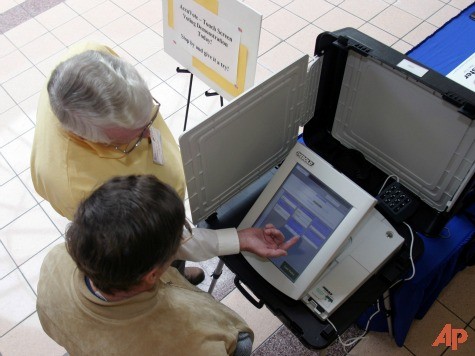
International observers from more than 60 countries who came to America to study America’s presidential election were surprised that there was less security at America’s polls than at voting locations in their home countries.
While the trust that undergirds America’s elections is a sign of a mature and stable democracy, it can also, on the other hand, easily be taken advantage of, which is reflected by the countless reports of voter fraud across the country.
As Foreign Policy magazine noted:
The most often noted difference between American elections among the visitors was that in most U.S. states, voters need no identification. Voters can also vote by mail, sometimes online, and there’s often no way to know if one person has voted several times under different names, unlike in some Arab countries, where voters ink their fingers when casting their ballots.
Observers — who were a part of a program run by the International Foundation for Electoral Systems (IFES) — “noted that there were no observers at the polling places to ensure that proper voting procedures were being followed.”
Nuri K. Elabbar, the head of Libya’s national election commission, was shocked that there was so much “good faith” and “trust” between election officials and voters.
“It’s an incredible system,” Elabbar, said. “It’s very difficult to transfer this system as it is to any other country. This system is built according to trust and this trust needs a lot of procedures and a lot of education for other countries to adopt it.”
International visitors noted there were no police at the polls, and states had different methods of casting ballots (some states use paper ballots and other states use electronic voting machines). In foreign countries, officials assume countries with different voting procedures within the nation are more prone to “fraud or abuse.”
“What’s very unique about the way the Americans do it, it’s not the process, it’s the confidence that’s placed in the process,”one observer said. “This is what lacks in other countries. They say if this would happen in Arab countries it would not work the way it does in the United States.”
International visitors also found U.S. ballots more complicated than ballots in their countries and were “amazed that ballots are sent directly to poll workers and that the handling of those ballots after the voting ends is also entrusted to local poll workers.”
The international observers also found America’s procedures for recounts to be fascinating.
In the West African country of Gambia, for instance, voters are given a marble to place in a jar when they go to the polls.
“The polls workers are listening because when the marble goes into the jar, there’s a ding. And if there are two dings, maybe somebody came in with extra marbles in their pocket, so they call the police,” an observer from Gambia said.
The Gambian observer could not conceive of recounts happening in her country. When asked how Gambians would hypothetically conduct a recount with their voting method, the observer said, “I have no idea.”

COMMENTS
Please let us know if you're having issues with commenting.